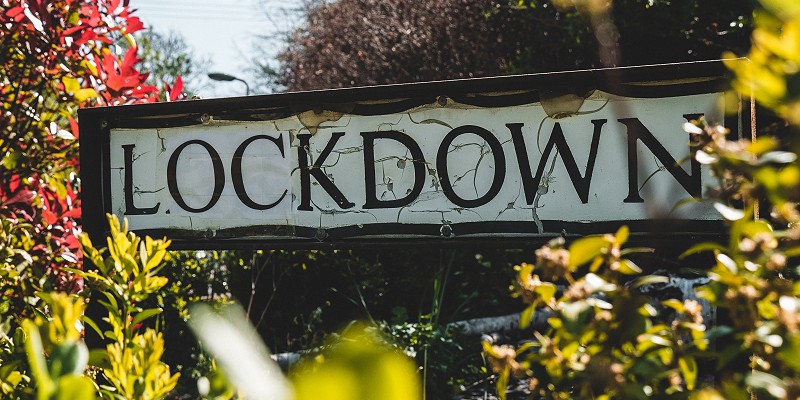Turning green in quarantine: How the environment is benefitting from 'lockdown.'

As life is put on hold and nations across the globe restrict the movement of their citizens, the lockdown is a challenging time for all of us. However, the evidence shows it is having a beneficial effect on the natural environment. As we see the benefits to people and nature, we have the perfect opportunity to explore how the changes to our daily patterns of life can be used to build more sustainable cities.
Air quality
The most notable effect in many countries is cleaner air as pollution levels drop. As people are spending less time commuting, traffic levels have reduced as much as 50-60% which has resulted in reductions in nitrogen dioxide (NO2) and particulate matter (PM2.5). Satellite images show dramatic changes with some cities seeing a reduction in NO2 up to 60% from the same period in 2019 and the 'before and after' photographs from smog-choked cities show just how quickly the air can clear. Communities in North India have for example reported seeing the Himalayas for the first time due to the drop in air pollution. The health benefits are obvious too - The World Health Organisation estimates around 3 million deaths per year from illnesses caused by air pollution. It has become evident in recent months the pressure that healthcare services are under; reducing rates of respiratory illness will reduce future burdens on these services.
Home or office?
Many of us are now working from home and have proved we can still deliver an efficient service. We are realising that the technology was there all along. You might be asking yourself, why didn't we do this before? and when normal working practices resume, do we really need to travel long distances for meetings?. Whilst it will not apply to everyone, businesses are now realising the economic and environmental benefits of remote working and virtual meetings. The AA has predicted a continuing reduction in travel as people have learned how to use home working technology. The obvious environmental benefits are the reduction in energy use for heating and cooling large office spaces and reduced vehicle emissions from a lower volume of commuter traffic; which raises another question - is it better for Government to spend funds on improving broadband and delay road improvement and infrastructure projects? at least for now. The pandemic has given us an indication of what cities and towns would be like if we devoted less space to cars, for example, Milan has committed to turning 35km of streets over to cyclists and pedestrians after the crisis.
According to the National Centre for Atmospheric Science which records air quality data from cities around the UK, the pandemic situation offers something of a policy experiment to test realistic targets for clean air in the coming decade. We are able to see into the future on how things will look when there are no more diesel cars on the road. This can help us to shape future policy. Environmental Audit Committee Chairman, Phillip Dunne MP, commented:
"The government has committed to a low carbon future, and the Environmental Audit Committee will look to explore how we can avoid going straight back to dangerous levels of pollution once this is all over."
Nature moves in
The natural world is enjoying some respite from human activities during the lockdown. Whilst there have been several reports of wildlife venturing outside their usual habitat into cities and towns due to the lack of human activity, the shutdown has also liberated wildlife to explore newly empty natural landscapes. The lockdown has decreased the disturbance of natural habitats and wildlife, for example, ground-nesting birds and coastal birds could have a more successful season.
There is also predicted to be an increase in wildflowers this summer due to a lack of grass mowing by local councils. This will in turn benefit birds, butterflies, bees and other bugs according to conservation charity Plantlife. Many of us are now reconnecting to our natural environment and this connection may lead to a greater appreciation of it and how to nurture and protect it in the future.
Water quality has also improved. Take Venice for example, where residents have observed shoals of fish and plant life in the clearer water resulting from less disturbance from motorboat taxis and tourist boats. There is no doubt that the lack of tourist boats and cruise ships will have a knock-on effect on water quality. Venice already struggles to accommodate over 25 million visitors per year. Fewer tourists mean fewer pollution incidents, less waste and less litter. Although businesses in Venice look forward to the return of tourists and to their livelihoods, this is the time to consider the impacts of tourism on sensitive areas like Venice and to reflect on a balance between tourism and environmental protection.
Being green in quarantine
Now that the initial phase of panic buying is behind us, there will undoubtedly be a reduction in some household wastes. As we look to our immediate families and what is really important to us, some would argue that we are being less wasteful. Clothes and non-essential shops are closed so we don't have the option of browsing and buying goods we don't really need. That means reductions in packaging waste, plastic consumables and food packaging. As fast-food restaurants, cafes, cinemas and entertainment venues close too, there is less packaging and food waste to deal with and as we generally now make fewer trips to the supermarket, we may find ourselves planning our meals a little better which is also reducing our food waste. According to the United Nations, global food waste contributes to 8% of the human-generated greenhouse gases.
The road to recovery
The International Energy Agency (IEA) is forecasting that global energy-related CO2 emissions will reach their lowest level since 2010, representing the largest decrease ever recorded. However, after the economic crash of 2008 when there was also a sharp decline in global emissions, this soon rebounded again. The hope is that Governments learn from this and put sustainable energy technologies at the heart of new policy and economic recovery plans. Now is not the time to bail out the fossil fuel industry. Indeed some have recently argued that airlines should not be bailed out unless they do more to tackle climate change. Environmental writer George Monbiot argues that workers should be supported while the economy is refashioned to provide jobs in more sustainable industries.
On the one hand, the difficult economic times that are upon us may challenge our enthusiasm for implementing environmental actions such as energy efficiency, renewables and electric vehicles and may halt the progress we have been making towards decarbonisation. However, the changes and sacrifices we have made have shown us what is possible and we may feel more empowered to take on the climate crisis now that we have faced arguably the biggest challenge of our generation.
It is clear that we can all learn from the global 'pause' and re-engage with the climate emergency.



